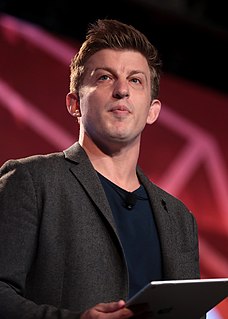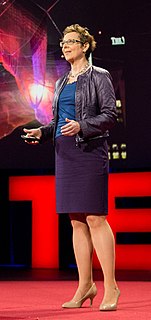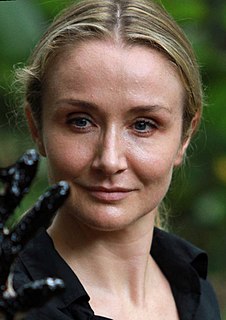A Quote by Jamais Cascio
Human civilization has been changing the Earth's environment for millennia, often to our detriment. Dams, deforestation and urbanization can alter water cycles and wind patterns, occasionally triggering droughts or even creating deserts.
Related Quotes
There has been evidence throughout history of cycles when the earth gets warmer and cycles when the earth gets colder. We should always be wise stewards of the earth and all of our natural resources. But as a policymaker, I won't be guided by the global warming propaganda machine. Al Gore - we need you to return your Nobel Peace Prize!
The environment is everything that makes up our surroundings and affects our ability to live on the earth - the air we breathe, the water that covers most of the earth's surface, the plants and animals around us, the overall condition of our planet, and much more. Protecting the environment is really important to everyone's welfare - that of our children, as well as that of the future generations.
The natural environment is not particularly hospitable to human life ... the key to having a good environment is improving it through work... . Energy is fundamentally an environmental improver and if we classify it that way it makes sense out of a lot of these controversies... . It's our obligation and our right to make [our environment] as good for human beings as possible. With that view, it's very easy for people to understand precisely the reason it's good to alter it - because it doesn't naturally come the way we need it to be.
I believe water will be the defining crisis of our century — from droughts, storms, and floods to degrading water quality. We'll see major conflicts over water and the proliferation of water refugees. We inhabit a water planet, and unless we protect, manage, and restore that resource, the future will be a very different place from the one we imagine today.
Everything we think about regarding sustainability - from energy to agriculture to manufacturing to population - has a water footprint. Almost all of the water on Earth is salt water, and the remaining freshwater supplies are split between agricultural use and human use - as well as maintaining the existing natural environment.



































